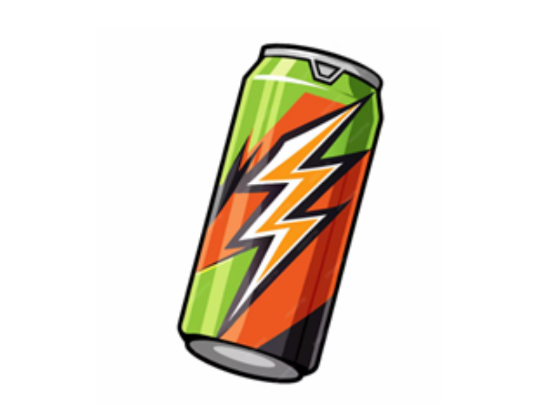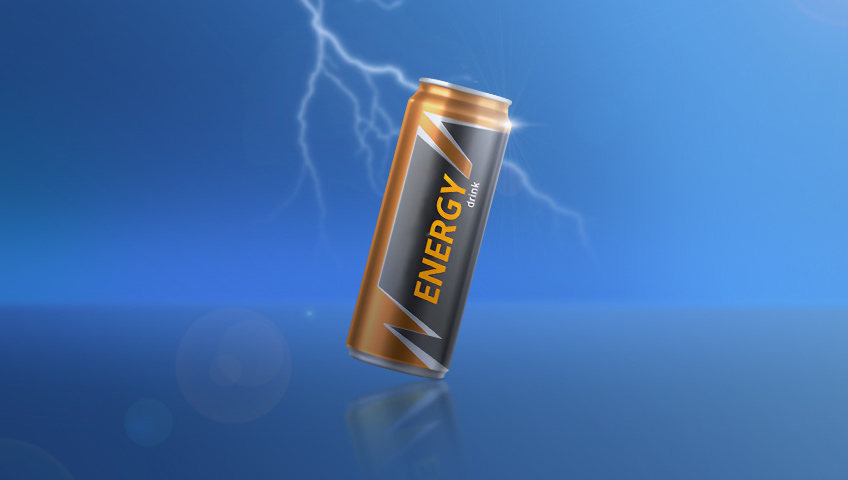2025.11.12
History
Energy drinks are beverages that contain high levels of stimulants such as caffeine and sugar. Supplements and vitamins are also used in their preparation. These drinks are marketed to increase alertness and energy. The first energy drink, named Lipovitan, was produced in the 1960s by a pharmaceutical company called Taisho in Japan to help combat fatigue and enhance alertness for those who needed to stay awake for long hours, such as factory workers or truck drivers. The main ingredient in it was taurine, an amino acid that is still used in the production of energy drinks today. These drinks have become one of the most popular beverages, with various brands, formulas, and flavors being widely consumed and turning into a multi-billion dollar industry. The global market continues to expand, with approximately 33 billion cans of energy drinks sold in 2023.
A concerning issue is the increasing consumption of energy drinks among children and teenagers. According to surveys conducted between 2013 and 2021, 13% to 67% of teenagers worldwide consume energy drinks. Excessive consumption of these drinks can lead to health risks.

Risks of Energy Drinks
Excessive consumption of energy drinks due to the caffeine and sugar content can pose health risks to consumers.
-
Caffeine
The caffeine content in energy drinks is 320 mg per liter, meaning that a 250 ml can of energy drink contains about 80 mg of caffeine, equivalent to the amount in two cans of regular soda (a 335 ml can of regular soda contains about 33.5 mg of caffeine). This amount of caffeine is even higher than that in a shot of espresso (a 30 ml shot of espresso contains 63 mg of caffeine) and is equivalent to five cups of tea (a 100 ml cup of tea contains 20 to 35 mg of caffeine).
By drinking a can of energy drink within a few minutes, you are essentially consuming the caffeine equivalent of five cups of tea. Would you consume that much tea in one sitting?
Adverse Effects of Caffeine
Excessive caffeine consumption is associated with side effects such as anxiety, irregular and rapid heart rate, temporary increase in blood pressure, digestive problems, frequent urination, sleep disturbances, and fatigue. While caffeine typically helps increase alertness during the day, it can negatively impact the quantity and quality of sleep, preventing deep sleep. This may result in persistent feelings of fatigue despite sufficient sleep. Moreover, regular and excessive caffeine intake can lead to caffeine addiction, causing psychological or physical dependence. In this case, withdrawal symptoms such as headaches, fatigue, etc., may occur after just 12 to 24 hours without caffeine. Individuals unaccustomed to caffeine may experience these adverse effects even after consuming small or moderate amounts of caffeine. Additionally, genetics play a role in caffeine tolerance, with some individuals being able to consume more caffeine without experiencing negative effects compared to others.
Recommended Daily Caffeine Intake
The American Academy of Child and Adolescent Psychiatry (AACAP) has not set a recommended caffeine intake for children under 12 years old and advises against caffeine consumption in this age group. The recommended daily caffeine intake for teenagers aged 12 to 18 should be less than 100 mg.
-
Sugar
A 250 ml can of energy drink contains approximately 27 grams of sugar, equivalent to 7 sugar cubes (each sugar cube weighs 4 grams). This amount of sugar is equal to 9 slices of white toast (each slice of white toast contains 3 grams of sugar).
By drinking a can of energy drink within a few minutes, you are essentially consuming the sugar equivalent of 9 slices of white toast. Would you consume that much bread in one sitting?
Adverse Effects of Sugar
Excessive sugar intake can lead to weight gain and insulin resistance, ultimately increasing the risk of developing type 2 diabetes. Other adverse effects of excessive sugar consumption include an increased risk of heart disease, certain cancers, mood changes, increased risk of depression, accelerated aging, acne, negative impacts on dental health, memory impairment, and Alzheimer's disease. Foods high in sugar can rapidly elevate blood sugar and energy levels, which is temporary, and the levels drop again shortly after, leading to feelings of fatigue.
Recommended Daily Sugar Intake
The National Health Service (NHS) has stated that adults should not consume more than 28 grams of sugar per day, equivalent to 7 sugar cubes, and children aged 7 to 10 should not consume more than 24 grams of sugar per day, equivalent to 6 sugar cubes.
Sugar-Free Energy Drinks
Some people opt for sugar-free products to reduce the risks associated with sugar. The label "sugar-free" can be found on some food products, including energy drinks. In the preparation of sugar-free energy drinks, artificial sweeteners are used instead of sugar. Contrary to popular belief, these sweeteners also pose health risks similar to sugar.
Risks of Sugar-Free Energy Drinks
Artificial sweeteners such as aspartame or acesulfame are used in the preparation of sugar-free energy drinks. The World Health Organization (WHO) has reported that long-term use of artificial sweeteners increases the risk of type 2 diabetes, heart attacks, strokes, and death.
Safe Consumption of Energy Drinks
Individuals who regularly consume a diet high in sugar and caffeine are at risk of severe blood sugar fluctuations, premature aging, obesity, heart disease, diabetes, and cognitive decline. This diet, due to its high calorie content and lack of essential nutrients, is unhealthy and can also lead to increased stress and sleep disturbances. These factors, in turn, affect hair health and can lead to hair loss. Given these risks, it is crucial to closely monitor the intake of sugar and caffeine, especially for vulnerable groups such as children and teenagers.
The American Academy of Child and Adolescent Psychiatry (AACAP) has stated that energy drinks are not suitable for children and does not recommend the consumption of caffeine for children under the age of 12. Additionally, no official limit for caffeine consumption has been established by other reputable organizations for this age group. The amount of caffeine in energy drinks is inappropriate for children who are still growing, as their bodily systems have not fully developed, and their lower body weight makes them more susceptible. Furthermore, the amount of sugar in one can (27 grams per 250 milliliters) exceeds the recommended daily sugar intake for children (24 grams per day). Therefore, as indicated on energy drink labels, children should avoid consuming energy drinks and instead opt for healthier beverages like water, milk, or natural fruit juices.
The American Academy of Child and Adolescent Psychiatry (AACAP) also advises against the consumption of energy drinks for teenagers (aged 12 to 18). However, it permits caffeine intake of up to 100 milligrams per day for this age group. Given the prevalence of energy drink consumption among teenger, and considering that the amount of caffeine in one can (80 milligrams per 250 milliliters) is almost equal to their maximum recommended daily intake of caffeine, additional caution is necessary. Additionally, the sugar content in one can (27 grams per 250 milliliters) is nearly equal to the recommended daily sugar intake (28 grams per day). Considering the potential intake of other caffeinated and sugary foods on the same day, it is recommended that teenagers avoid consuming a full can of energy drink in one day. For example, they could consume half a can, or if they choose to consume a full can, they should avoid other caffeinated and sugary foods on that day to prevent excessive caffeine and sugar consumption.


